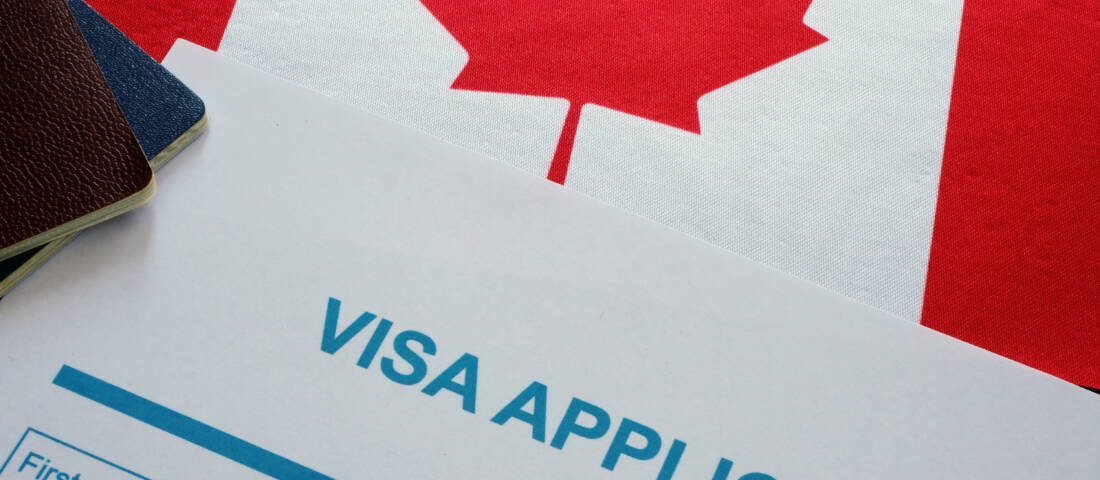Canada offers many opportunities for business immigration to grow and strengthen the economy and create jobs for Canadians. For business immigrants, owning a business in Canada can be a great way to contribute to the economy and build a successful life in a new country. It can also be the first step towards becoming a Canadian permanent resident. Here is an overview of the business immigration pathway for foreign business owners, entrepreneurs and investors to become permanent residents.
A Canadian permanent resident is someone who has been given permanent resident status by immigrating to Canada but is not a Canadian citizen. Canadian permanent residents can:
- get many of the social benefits that Canadian citizens receive, including health care coverage and education
- live, work or study anywhere in Canada
- apply for Canadian citizenship
- receive protections under Canadian laws and the Canadian Charter of Rights and Freedoms
BOOK YOUR FREE CASE EVALUATION
4 Steps From Foreign Business Ownership to Canada Permanent Residence
1. Establish or Invest in a Canadian Business
There are several avenues for international investors to engage with Canadian businesses:
- Start a Fresh Venture: Initiate your own business concept from the ground up.
- Acquire an Existing Business: Consider purchasing a pre-established company.
- Invest in Shares: Obtain shares in an operational Canadian enterprise (minimum ownership criteria may apply).
- Franchise Ownership: Explore franchising opportunities with well-known brands.
While Canadian residency or citizenship isn't obligatory for initial investment, obtaining a work permit is necessary to actively participate in business operations. Employing a Canadian manager can serve as a temporary solution until you gain authorization to work in Canada.
Investment Considerations
The initial investment amount can vary depending on your chosen path. Here's a general range:
- $150,000 to $350,000 CAD: This covers basic startup or investment costs.
- Higher Amounts: Businesses with established profitability might require a larger investment (e.g., $300,000 to $500,000 for a business generating $100,000 annual net profit).
Remember: This is just the first step. Owning a business can contribute towards obtaining permanent residency, which is a prerequisite for applying for Canadian citizenship.

2: Secure Your Work Permit
Several work permit options exist for foreign business owners and entrepreneurs, each catering to different backgrounds and goals:
- LMIA-based Permits: While owner-operator LMIAs no longer skip advertising requirements, you can still apply under the regular stream to manage your business.
- Intra-Company Transfers (ICTs): Intra-company transfers are applicable for entrepreneurs with existing multinational companies establishing a Canadian branch and seeking work permits for themselves.
- Investor Work Permits (Free Trade Agreements): Investor work permits are for citizens of specific countries (including the US, Mexico, EU nations, and more) to invest and operate businesses in Canada.
- Entrepreneur Work Permits (C11): Entrepreneur work permits are designed for foreign nationals whose ventures offer significant economic benefits to Canada.
- Start-up Visa Work Permits: The start-up work visa is ideal for entrepreneurs launching innovative or scalable businesses.
- Provincial Nominee Programs (PNPs): While potentially complex, some PNP programs offer work permit opportunities for business owners.
- Quebec Investor Program: Quebec immigration may be available for a high-net-worth individual option leading to work permits and eventual permanent residency.
3: Establishing Your Business Presence
Once you have a work permit, the next step is to establish an active business in Canada. To apply for permanent residence, the minimum time you must have been actively working in Canada is typically around 12 months, but it can vary based on the business type (established vs. new) and your type of work permit.
Remember, profitability isn't the primary concern. However, your business must be demonstrably active, operational and financially sound to cover expenses and your salary to qualify for permanent residence.
4: Transitioning to Permanent Residency
After actively running your business for at least 12 months, you may be eligible for permanent residency through the Express Entry (EE) program's Federal Skilled Worker stream. Owning a qualifying Canadian business can grant you an additional 200 points under the EE system's "arranged employment" category.
Qualifying Business Characteristics:
- Actively sells goods or services to customers (domestic or international).
- Holds all necessary licenses and permits for legal operation.
- Operates from a physical commercial location in Canada.
- Employs a number of local staff.
- Positions you in an executive or senior managerial role, overseeing broad business operations and delegating daily tasks.
- Demonstrates progress towards your established business plan.
Additional Permanent Residency Requirements (Express Entry):
- Language skills equivalent to Canadian Language Benchmark (CLB) 7 or higher.
- Possession of a Bachelor's degree or other post-secondary credentials.
- A clean criminal record and good health.
Remember: This is a simplified overview of how foreign entrepreneurs can become permanent residents of Canada. Immigration regulations can be complex, so consulting with an experienced Canadian immigration lawyer is highly recommended for personalized guidance throughout the process and to avoid and troubleshoot potential problems.
Permanent Residence v Citizenship
It is important to remember there are many differences between Canada Permanent Residents and Canadian Citizenship. PRs who do not become citizens are not entitled to the same rights and privileges as citizens. Penalties for committing a crime in Canada for citizens are different from permanent residents and temporary residents - including permanent deportation from Canada.
Are You a Foreign Entrepreneur Who Wants to Start a Business in Canada?
When navigating the complexities of Canadian immigration law, an experienced Canadian immigration lawyer serves as an invaluable ally for foreign entrepreneurs seeking to secure permanent residency. With our expertise, we can provide tailored guidance, anticipate potential obstacles and strategize solutions to ensure a smooth transition from business ownership to Canadian permanent residency. By entrusting your immigration journey to a seasoned professional, you not only gain peace of mind but also maximize your chances of success in establishing a prosperous and fulfilling future in Canada.
BOOK YOUR FREE CASE EVALUATION
Ackah Business Immigration Law has a team of experienced immigration professionals who work closely with businesses and individuals to smooth their way to new opportunities in Canada and the United States. By using our firm, you can fast-track your immigration process and avoid common mistakes that could lead to rejection and the potential loss of your chance to work in Canada or the U.S. We provide ongoing support throughout the entire process, so you can be confident that you are taking the necessary steps to secure your visa.
Ackah Law has offices in Toronto, Calgary and Vancouver to help people move to new opportunities in Canada and the U.S. Contact Ackah Business Immigration Law at (587) 854-3866 or by email at contact@ackahlaw.com.








